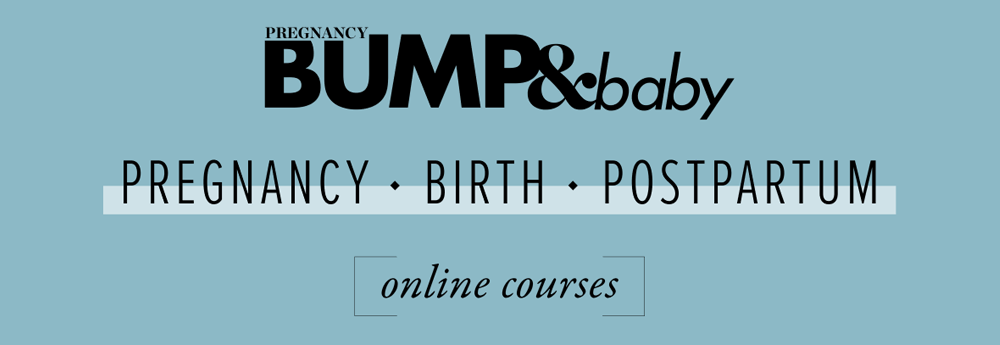
If your baby is crying more than seems normal, it could be nothing, or it could be colic or even reflux. How do you know the difference? Penny Voigt explains.
Does your baby seem to cry more than he should? Does he often spit up his milk after a feed? While these are quite likely signs of a healthy baby, they could be something else.
So how do you tell the difference between normal crying and something a little more concerning? To help you determine whether or not your baby has colic or re ux, here are some of the signs and symptoms to look out for.
What is colic?
Colic is the term used to describe problem crying in otherwise healthy babies. While most babies cry on average for about 2.5 hours in any 24-hour period, babies with colic will cry more often for no apparent reason, often exhibiting signs of discomfort.
Colic occurs in as many as one in ve babies and can last for several hours at a time, even late into the night. As hard as you try to calm and comfort your baby, the crying persists, and there seems to be no solution to the crying.
What are the symptoms and signs
To help you identify whether your baby has colic, follow the “rule of threes”:
- Crying starts at three weeks old;
- Crying lasts for more than three hours at a time;
- Crying occurs at least three times a week;
- Crying continues for at least three weeks in a row.
In addition to the rule of threes, other signs and symptoms to look out for include:
- Loud, piercing wails, more screaming than crying. • Baby pulls his legs up and clench his hands into tiny fists.
- Baby closes his eyes or opens them very wide, furrowing his brow, and could even hold his breath.
- Baby may pass gas or spit up.
- Baby appears active and quite frantic, and won’t settle to sleep or eat.
What causes colic?
The exact cause of colic is unknown; however, it’s not considered genetic or related in any way to the type of pregnancy or childbirth you had, and it has nothing to do with your parenting skills! There are a number of theories behind what causes colic. Here are a few of them:
Overstimulation
Newborns can tune out sights or sounds around them, allowing them to sleep and eat without being disturbed. But by the end of their rst month, this mechanism disappears and can leave babies more sensitive to stimuli around them. So many new sensations can overwhelm baby, resulting in a need to release this stress through crying. The colic ends when baby learns to lter out these stimuli to avoid a sensory overload.
Immature digestive system
Food passing through baby’s gastrointestinal system may not break down completely, causing painful gas in the intestines.
Infant acid reflux
Thought to be a trigger for colic, gastro-oesophageal re ux disease (GORD) is the chronic form of acid re ux.
Food allergies or sensitivity
An intolerance to lactose is thought to cause tummy pains that may set off colic. Exposure to cigarettes Studies show that mums who smoked during or after pregnancy are more likely to have babies with colic.
How to treat colic
To avoid overstimulating baby, steer clear of situations where baby may feel overwhelmed by noise or bright lights, particularly towards the end of the day. Instead, create a calm, peaceful environment by dimming the lights and keeping noise levels down. You could try swaddling or wrapping baby snugly in a blanket so he feels secure, or try white noise or soothing music, or take baby for a walk to calm him.
Some colicky babies find relief when you apply pressure to their tummy. Try placing baby face-down on your lap or upright with his tummy against your shoulder, or use the “colic carry”, where baby lies face-down with his belly on your arm, and gently rub or pat his back.
If you’re breastfeeding, pay careful attention to what you’re eating, as some foods can cause baby to suffer from gas or a sore tummy. Try using gas drops, gripe water, or consider probiotics, but remember to talk to your doctor before administering any medication to baby or before making any changes to his diet.
When should you take baby to the doctor?
If you are concerned and think your baby may have colic, it’s a good idea to talk to your GP, even if it’s just to get some reassurance that baby is still thriving despite the continuous crying. The good news is that colic doesn’t last and usually around the three- month mark, the crying stops as abruptly as it started. The keys to surviving this nightmarish time are knowledge and patience.
What is reflux?
Gastro-oesophageal reflux or GOR occurs when milk that your baby has swallowed is vomited or spit up after a feed. Because babies have immature digestive systems, the ring of muscle controlling the valve between the oesophagus or food pipe and the stomach may not work properly. This means that when baby’s tummy is full, milk and acid can come back up the food pipe, causing discomfort.
As baby grows, the muscular valve at the entrance to his tummy grows stronger and his stomach capacity increases too. Around 90% of babies with reflux outgrow it by the end of their rst year. Here are three factors that contribute to infant reflux:
- Baby lying at most of the time;
- An almost completely liquid diet;
- Babies being born prematurely.
How do I know if my baby has reflux?
Your baby may bring up small amounts of milk (called posseting) or occasionally vomit after eating. He may also have hiccups and cough and splutter a little. This is completely normal, and provided your baby is otherwise well, you don’t need to worry.
How can I prevent reflux?
Try these tips to help prevent reflux:
- Feed baby in an upright position.
- Hold baby upright for 20-30 minutes after each feed.
- Try giving baby smaller, but more frequent, feeds.
- If you bottle-feed baby, burp him every two to three minutes during feeds, and make sure that the hole in the teat isn’t too large.
- Try raising the head end of your baby’s cot by putting a rolled-up blanket or wedge underneath the mattress.
Are there any treatments for reflux?
Most babies with reflux who are otherwise healthy do not need speci c treatment, as they tend to outgrow the condition over time. If baby’s reflux is severe, your doctor may advise that you cut out cow’s milk to rule out an allergy or food intolerance, or try an infant antacid to help neutralise the acid in baby’s tummy.
When should you take baby to the doctor?
Bringing up a little milk or occasional vomiting after feeds is nothing to worry about. But do see your doctor if your baby:
- Is not gaining weight;
- Is projectile vomiting;
- Spits up green or yellow fluid or spits up blood;
- Refuses his food;
- Has blood in his stool;
- Has difficulty breathing or has a chronic cough;
- Begins spitting up at age 6 months or older;
- Is unusually irritable after eating.
BUMP&baby
BUMP & baby is New Zealand’s only magazine for pregnancy and early babyhood. Our team of mums and mums-to-be understand what it’s like to be pregnant in this connected age, and that’s why BUMP & Baby online is geared toward what pregnant women and new mums really want to know.
Other articles of interest
Maternity leave: 8 essential questions answered
Parental leave entitlements can be a bit confusing. Here’s a quick guide to what you need to know.







